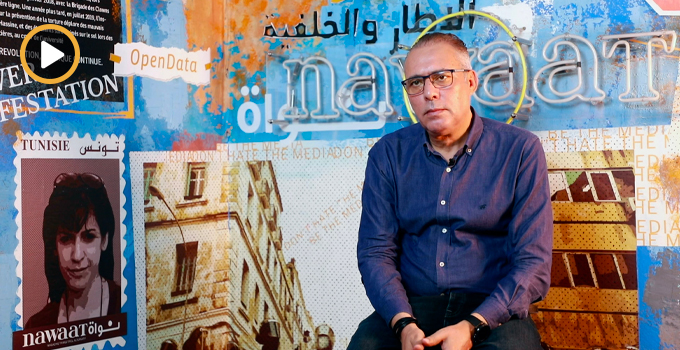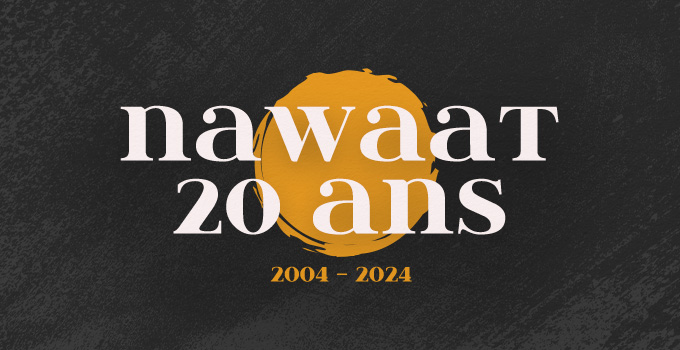Betty McCollum told her constituents she was going to honor the dead. “Congresswoman Betty McCollum (D-MN) will spend the Fourth of July holiday visiting the North African Cemetery and Memorial in Tunisia to pay tribute to American troops, including 138 Minnesotans, who lost their lives in World War II,” reads a July 1 statement on her website. “It is an honor for me to have the opportunity to pay tribute to these courageous men on behalf of Minnesotans and the nation.”
But the state-run Tunisian press agency reported something else. The next day, on July 2, Rep. McCollum met with the Tunisian Foreign Minister, Abdelwaheb Abdallah, in Tunis. “The Foreign Minister briefed his guest about the comprehensive development work carried out in Tunisia, under the impulse of President Zine el Abidine Ben Ali, and stressed Tunisia’s will to further reinforce its relations with the United States, highlighting the role [of the] ‘Tunisia Caucus’ in strengthening these relations,” reads a Tunis-Afrique Presse news agency report.
“Mrs. McCollum affirmed in turn that ‘Tunisia holds a strategic position between Europe, Africa and the Middle East and it represents the voice of moderation and wisdom in the world, a voice we must listen to,’” according to the Tunisian state news report.
McCollum’s chief of staff Bill Harper later clarified to the Committee to Protect Journalists (www.cpj.org) that she made this remark in the context of foreign policy, and, in particular, Tunisia’s advice more than five years ago to the United States. While long cooperating with Washington in the war on terror, Tunisia earlier in this decade (quietly) opposed the Bush administration’s intervention in Iraq. “The premise of her visit was security,” he explained.
But Iraq was not mentioned in the Tunisian government news report about McCollum’s visit. Instead, the Tunis-Afrique Presse agency went on, “The meeting allowed as well to highlight the role of [the] ‘Tunisia Caucus,’ a group within the U.S. House of Representatives including congressmen who want to learn more about Tunisia, its culture, traditions, history and people and to further strengthen bilateral relations.”
Apparently the bipartisan Tunisia Caucus has little or no interest in learning about, or even acknowledging, Tunisia’s abysmal record on press freedom and human rights. The so-called moderate and wise leader, President Ben Ali, is a dictator who has monopolized power for no less than 21 years. He runs Tunisia as a police state, where the country’s large, Soviet-style press does little more than laud the despot and his tight-fisted regime.
Only a handful of Internet publications and small-circulation opposition papers have attempted to seriously criticize the government or hold it accountable. But journalists writing for these outlets have been placed under surveillance, assaulted by plainclothes police, had their phone and Internet lines cut, and been prevented from leaving the country. Enough have been imprisoned since 2001 to make Tunisia the Arab world’s worst nation for jailing journalists.
Of course, Tunisia’s admirers are right to point out that it is a highly secular as well as modern nation. Not only does it have a literate population, but one in which women largely enjoy the same rights as men. The sunny Mediterranean state is also one that has little or no history of ethnic or sectarian strife. No wonder the nation seems like a natural “friend,” as U.S. diplomats prefer to call it, if not ally of the United States.
But members of congress seeking to strengthen such ties should neither sidestep nor dismiss Tunisia’s utter lack of democratic rights and norms. Unfortunately, McCollum is hardly the first to do so. Earlier this year, the other Tunisia Caucus co-chair, Rep. Bud Cramer, Jr. (D-AL), went to Tunis where he also pledged to strengthen bilateral relations without mentioning either press freedom or human rights. The Tunis-Afrique Presse agency quoted Cramer saying, “He voiced his readiness to exert more influence…to better publicize the opportunities offered by Tunisia so as to hoist bilateral co-operation to higher levels.”
Cramer’s press officer Jennie Gibson did not return calls asking for comment.
Nor should members of congress allow their statements to be used for propaganda by a police state. On Wednesday, the Committee to Protect Journalists’ Middle East Program Coordinator Joel Campagna wrote an op-ed (http://www.twincities.com/opinion/ci_9962056) about McCollum’s recent visit to Tunis in The St. Paul Pioneer Press, her hometown paper. McCollum has yet to respond to the op-ed. Her press officer, Cleve Mesidor, also did not return calls asking for comment for this blog.
Other members of the Tunisia Caucus include Rep. Mark S. Kirk (R-IL), Ben Chandler (D-KY), Henry E. Brown, Jr. (R-SC) and Rep. Solomon P. Ortiz (D-TX).
Note: CPJ is a worldwide watchdog that accepts no government funds as it defends the rights of journalists everywhere to report the news without fear of reprisal.
Source: The Hill Blog | By Committee to Protect Journalists Washington Rep. Frank Smyth, July 25th, 2008




iThere are no comments
Add yours